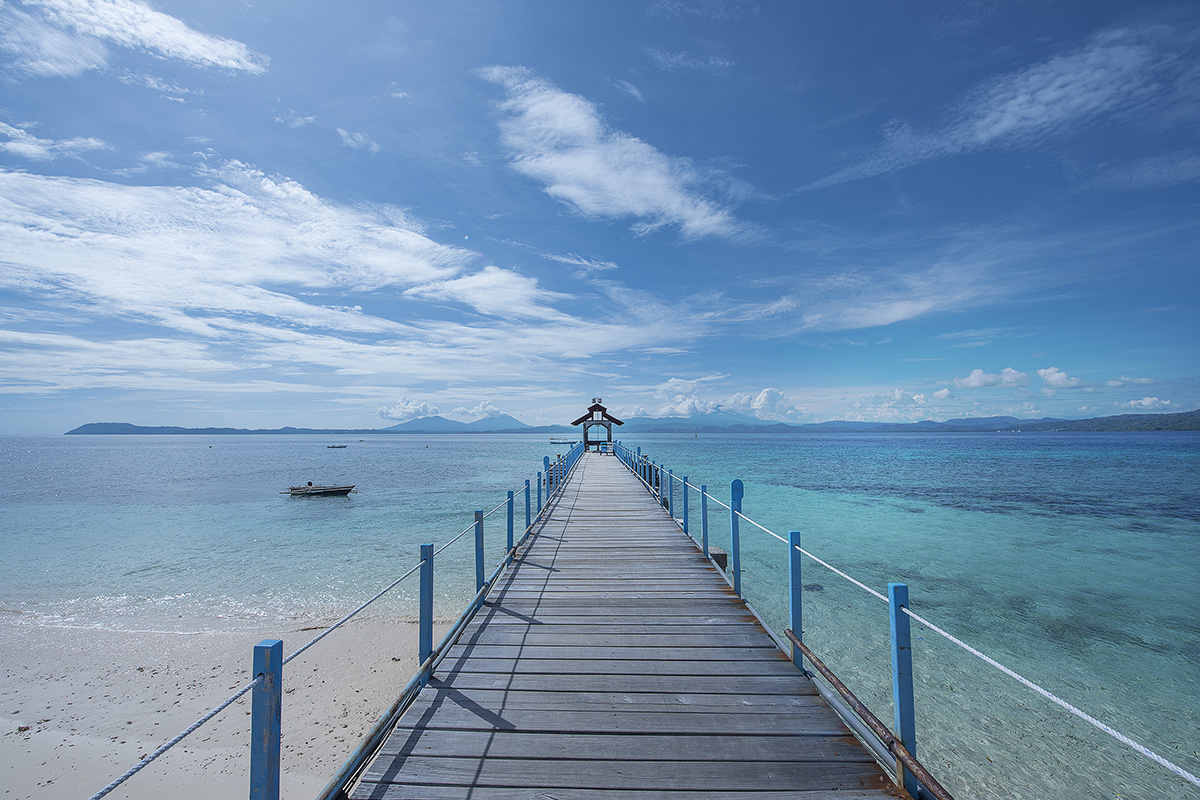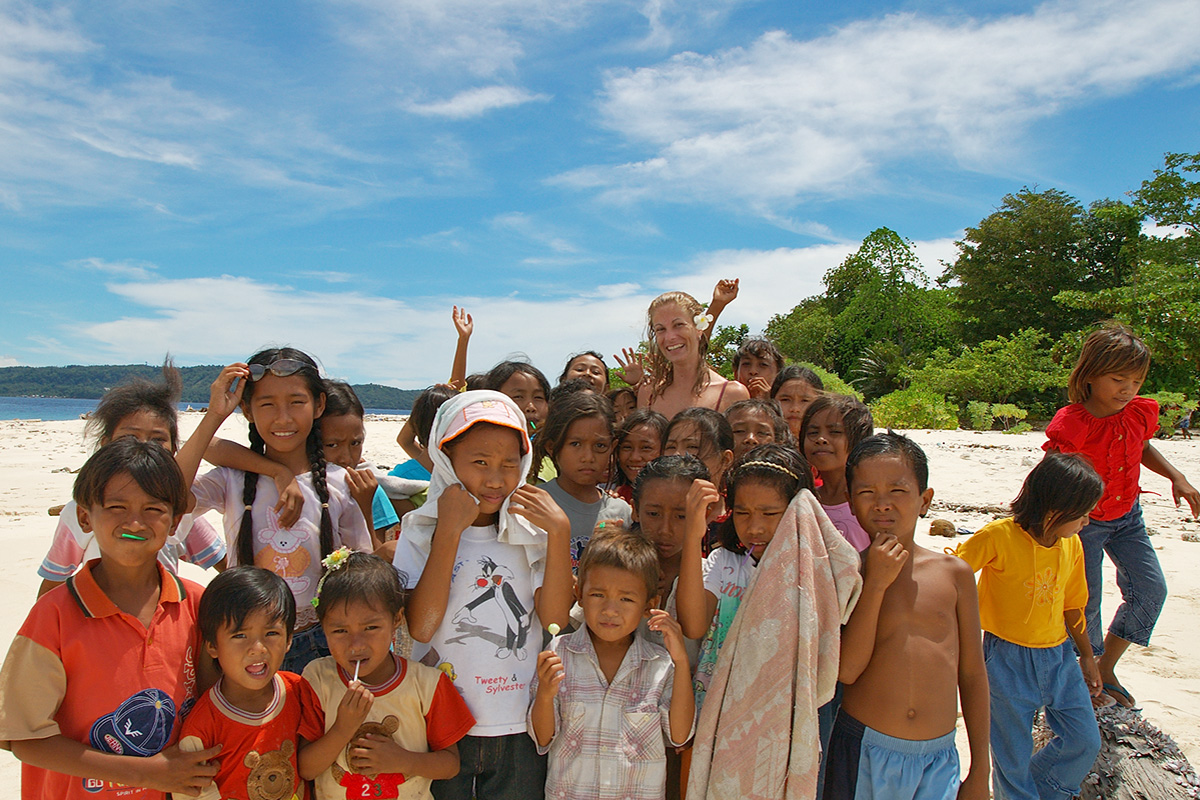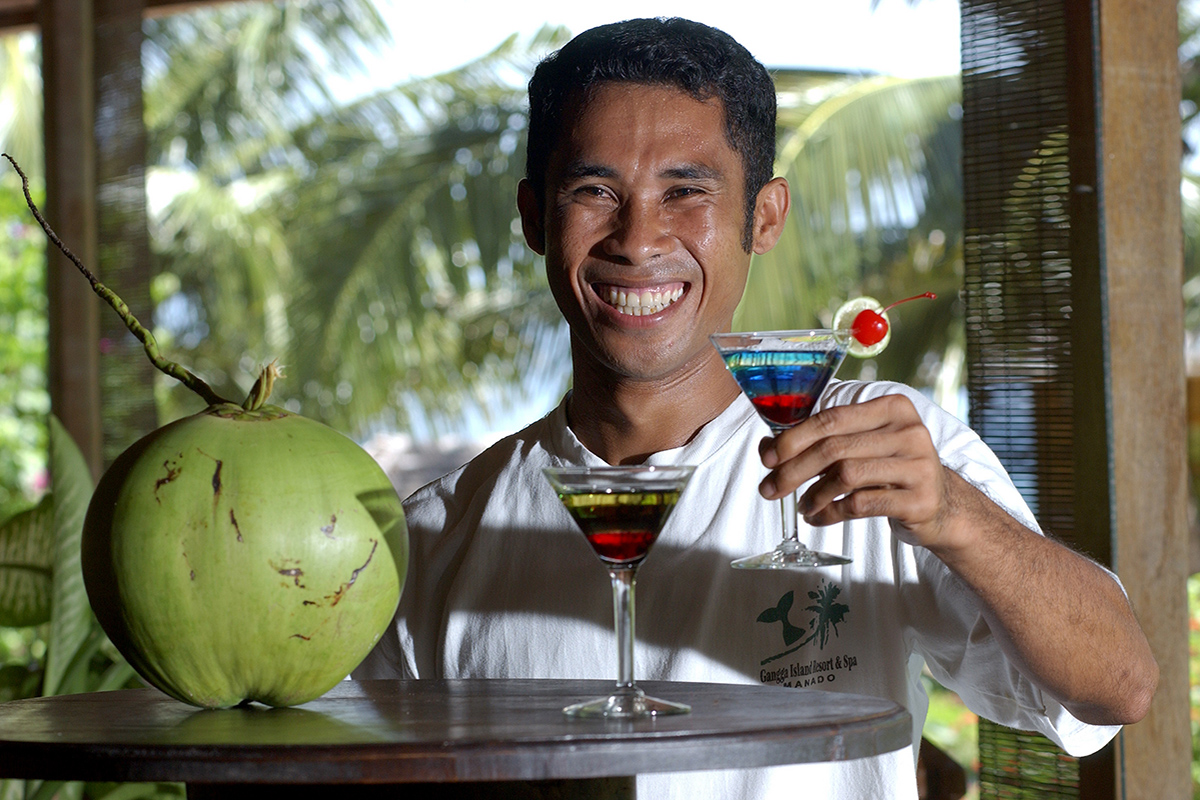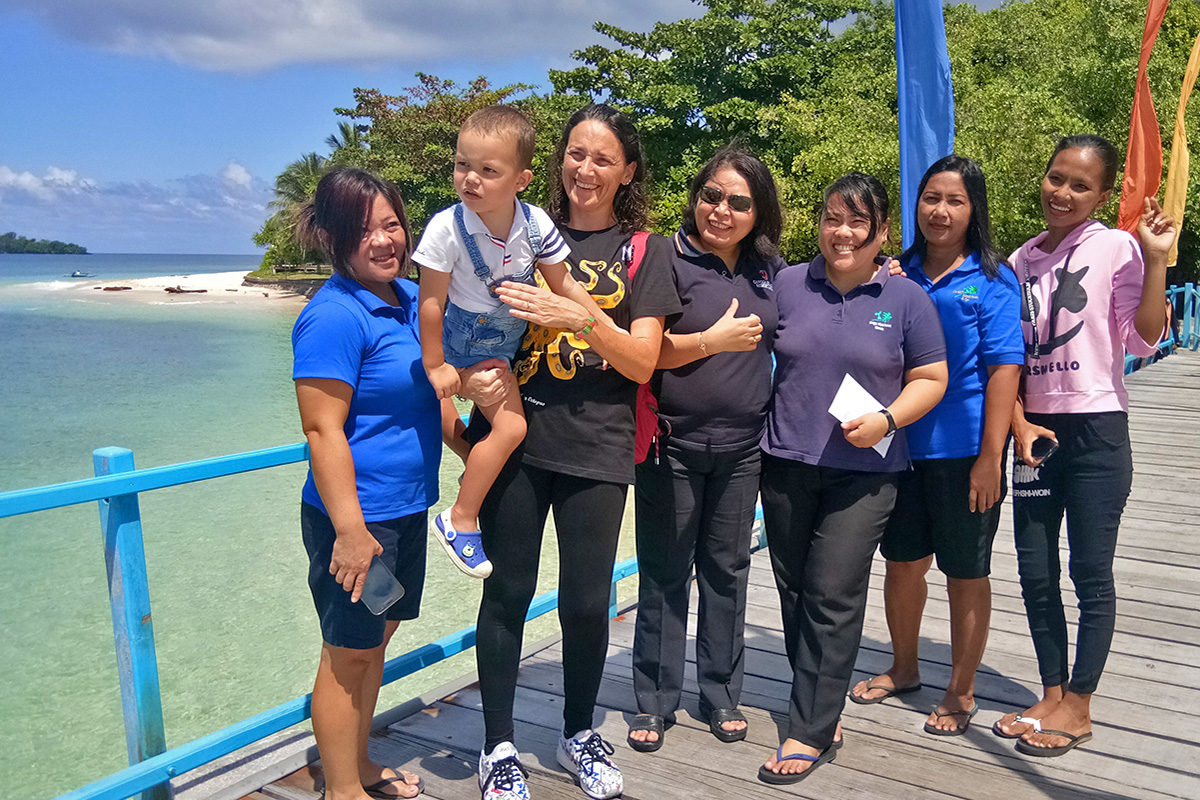A Travellers Guide to Basic Bahasa Indonesia
Indonesia is an incredible archipelago with over 17,500 islands. This enormous stretch of islands has everything from culture, world-class surf and diving and of course plenty of beautiful beaches, making it a traveler favorite. With a population of 242 million and over 300 languages spoken, it is Bahasa Indonesia, or the Indonesian standard language that ties the people together.
In Manado, North Sulawesi, where Gangga Island Resort & Spa is located, the main languages spoken are Manado Malay and Bahasa Indonesia. Both languages are rooted in Malay which makes them quite similar. However you’ll probably also hear Minahasan, which has no less than 5 distinct dialects. So, you can see the need for a standardized language just from this small slice of the archipelago!
When you visit Indonesia, whether it’s to dive at Gangga Island or anywhere else in the country, you’ll be able to communicate if you speak a little Bahasa Indonesia. We’re going to help you out today with some basic words and phrases that come in handy on travels in Indonesia.
Greeting People and Introducing Yourself
You’ll often be asked your name and where you come from when you meet Indonesians, so it’s wonderful if you can introduce yourself in their language.
- Selamat Pagi: Good morning
- Selamat Siang: Good afternoon (from around 11am-4pm)
- Selamat sore: Good evening (from around 4pm-sunset)
- Selamat malam: Good night
- Apa kabar?: How are you? – Baik Baik (pronounced like bike): I’m well
- Siapa nama anda? or Siapa namamu? (informal): What is your name?
- Nama saya ……….. : My name is …………
- Anda berasal dari mana? or Dari mana/Asli mana? (informal): Where are you from?
- Ba Pak or Pak: Father or Mister (used for an older male)
- Ibu or Bu: Mother or Miss (used for an older female)
Just as side note, people of the around the same age as you will probably be introduced to you with their first name. If they are older always use Pak or Ibu but for younger people it’s ok to use their first name.
Shopping and Bargaining
Bargaining is almost a sport in Indonesia. If you don’t bargain at least a little people will be confused. You’ll need to know your basic numbers and the word mahal, and make sure to practice your acting skills as well.
- Berapa harganya?: How much is this?
- Mahal: expensive
- Terlalu mahal: too expensive
- Boleh ditawar?: May I bargain?
- Boleh kurang?: Can you drop the price?
- Harga Pas: Fixed price
- Terima Kasih: Thank You
- Sama sama: You’re welcome
- Satu: one
- Dua: two
- Tiga: three
- Empat: four
- Lima: five
- Enam: ix
- Tujuh: seven
- Delapan: eight
- Sembilan: nine
- Sepuluh: ten
- Puluh: add this on to any number to make a multiple of 10 e.g dua puluh: twenty
- Ratus: add this on to any number to make a multiple of 100 e.g tiga ratus: three hundred
- Ribu: add this on to any number to make a multiple of 1000 e.g lima ribu: five thousand
- Juta: add this on to any number to make a multiple of 1000000 e.g Enam juta: six million
Finding Your Way Around
People are generally happy to help you get around, but if you are out on your own it’s good to know how to ask for directions. You’ll also get Indonesians asking you where you’re going (Mau ke mana?) or where you’ve been (Datang dari mana?) all the time. Just know they aren’t being nosy, just making conversation.
- Kiri: left
- Kanan: right
- Belok: turn
- Near: dekat
- Jauh: far
- Dari: from
- Ke: to
- Di mana?: Where
- Di mana ……? Where is ……? E.g Di mana supermarket?: Where is the supermarket?
- Saya mau pergi ke ……: I want to go to……
Now you know enough basics of Bahasa Indonesia to get out and see a bit of the amazing Indonesian archipelago. The most important thing to do is be confident and know that Indonesian people are open, welcoming and very happy to help. They love when tourists make an effort to learn a little Bahasa and will repay you for your effort with smiles and friendship. Is there anything else you would like to know in Bahasa Indonesia? Let us know in the comments.





